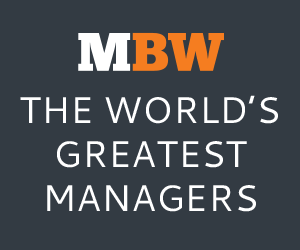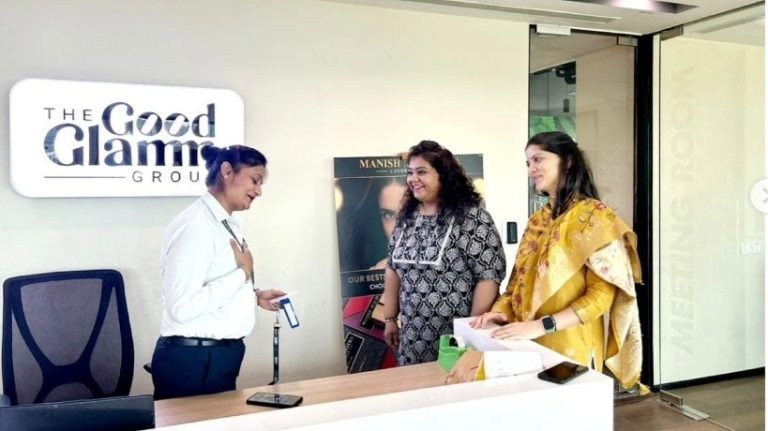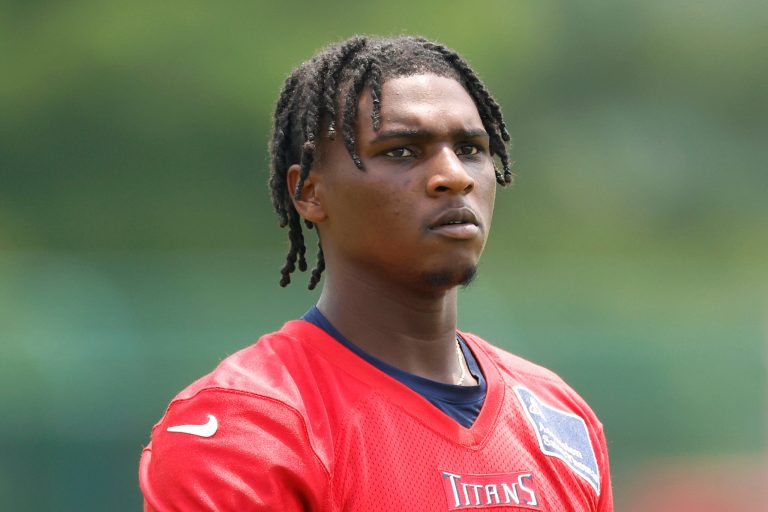MBW’s World’s Greatest Managers series profiles the best artist managers in the global business. Dugi Lipa is the manager (and father) of global pop phenomenon Dua Lipa. Here he discusses his own extraordinary story as well as the challenges of management in the modern music industry and much more. World’s Greatest Managers is supported by Centtrip, a specialist in intelligent treasury, payments and foreign exchange – created with the music industry and its needs in mind.

In another world, this article would celebrate the precise dental work of Dr. Dukagjin Lipa, a respected Kosovo-born practitioner. But life – and music – had other plans.
In this world? Dugi Lipa is best known as the father and manager of global pop phenomenon Dua Lipa – though that sells his story dramatically short.
Dugi grew up in Prishtina, Kosovo, where as a 15-year-old he formed a band that would achieve No.1 status in his home country.
Despite musical talent (he was trained on violin before jumping to the guitar) Lipa was directed into dentistry, which he studied until conflict in the former Yugoslavia changed everything.
Arriving in London with his then-girlfriend (now wife) in the early 1990s, Lipa fell instantly in love with the British capital. “I felt like I belonged from the very first second I stepped foot in London,” he recalls. “London was not a typical destination for Albanians from Yugoslavia or Kosovo – but it was definitely a place for people who were in love with music and the arts.”
“I believe we get secretly trained in life, unknowingly, for what we are destined to do.”
While waiting for the war to end, Lipa began working in bars for promoter Mean Fiddler.
Meanwhile, he reconnected with fellow Kosovo musicians living in London (along with an English keyboard player), and formed a new band, ODA. Their self-produced album – recorded in a bedroom studio and initially pressed in a run of 1,000 CDs – eventually sold around 20,000 copies worldwide.
“That’s where I found my love for managing artists,” Lipa says of this formative period. “I was doing the booking, the organizing, the distribution, negotiating the deals.”
He adds: “I believe we get secretly trained in life, unknowingly, for what we are destined to do.”
Having pursued a marketing education while developing his creative skills, Lipa later returned to Kosovo with his family, where he was part of building a successful telecoms business that was acquired by Slovenian Telecom.
With some money in his back pocket, he subsequently founded a marketing agency that still operates – as Republika Communications – with Dua as its star client.
Dugi officially became Dua’s full-time manager following her departure from TaP Management in 2022.
He has since been navigating, contracting and arranging landmark moments in her career, including releasing her acclaimed third album Radical Optimism (a UK No.1), plus opening last year’s Grammys and BRIT awards, and a stunning Glastonbury 2024 headlining set (which was livestreamed worldwide – a first – following a pioneering agreement between Dugi, Warner Music, and the BBC).
Dugi also served as executive producer on Dua’s landmark Royal Albert Hall show in October, complete with a 54-piece orchestra and 14-piece choir. That show, co-produced by Fullwell73 and Lipa’s Radical22, was broadcast worldwide and featured a rare guest performance from Sir Elton John.

In 2025, Dua Lipa is taking on a global sold-out tour including domestic stadium shows – two nights at Wembley, two at Liverpool’s Anfield, and one in Dublin. Her worldwide jaunt started in Singapore in November 2024 and will likely conclude in South America in December.
All this, plus multiple Grammys and BRITs, and a jaw-dropping 48 billion-plus streams to date.
Here, MBW speaks with Dugi Lipa about his journey from dentistry student to music manager, his perspectives on publishing rights, and why the British music industry needs to rediscover its confidence…
When did music first become important in your life?
My parents were very much into music, but weren’t connected to the music world at all. My dad was head of the Historical Institute of Kosovo, an academic, and my mom was a teacher.
As a teenager, I formed a band with my friends. We had a No.1 hit in Kosovo, which still seems ridiculous! We were a band of 15-year-old guys practicing in my garage – none of us aspired to make a living out of it.
“the war started so I went to spend a few weeks in london. Here we are, 34 years later.”
I went on to study dentistry, which was quite typical at that time in ex-Yugoslavia. You would study to be a doctor, a dentist, a lawyer, an architect, or an accountant.
I moved to Sarajevo to study because of the political situation changing in Kosovo and the University in Albanian language being banned by the Serbian regime [as the threat of conflict loomed in the early 1990s]. Then the war started. I had some friends in London, and they invited me to come and spend a few weeks with them. Nobody thought the war was going to continue and define our lives.
With my then-girlfriend, now wife, Anesa, we came to London to spend a couple of months. And here we are, 34 years later.
After arriving in London you started working in bars for Mean Fiddler, striking up a friendship with legendary live music mogul Vince Power…
Yes. I worked behind the bar at CUBE Bar in Swiss Cottage, and then later at Bartok, Camden, as well as Jazz Café, The Kentish Town Forum, Point 101 – a lot of them. It was something to do while waiting for the war to end.
Vince used to come to CUBE Bar because it was the new trendy place in the Mean Fiddler [portfolio]. He felt comfortable talking to me about things, and I found it easy to talk to him. – not everyone did! Every time we were there, we would have conversations about music and festivals, marketing and creative directions. We had great conversations about music, festivals and how [Mean Fiddler] were promoting them. I often think fondly of him, God rest his soul.
“That’s when I started thinking maybe I wasn’t cut out to be a dentist after all…”
Vince persuaded me I had something creative to offer and helped me enroll in university to study marketing and communications, with the idea that I’d come back and work in the marketing department at Mean Fiddler. But while I was taking the courses, Mean Fiddler was sold.
At the same time, I’d started helping out on the marketing side for Reading Festival, which was relatively small compared to
what it is today. I loved it, and it gave me the bug for [the combination of] marketing and music.
That’s when I started thinking maybe I wasn’t cut out to be a dentist after all…
After your time with Mean Fiddler, you moved into the world of marketing and advertising, becoming a successful Creative Director. How did that career change come about?
While studying, I worked in nightclubs and also sold cable internet door-to-door. It taught me a lot about people, sales and negotiation – finding a way to talk to people effectively is an essential skill that has helped me in the music industry to this day.
After completing my marketing diploma – and Mean Fiddler being sold – I had no desire to go back to working in the bars. That’s when I set up my own small marketing consultancy.
In the early 2000s I landed a contract working with an association of specialized British Airways partners that were opening routes to Tirana in Albania, Prishtina in Kosovo, Zagreb in Croatia, Ljubljana in Slovenia, Hungary, the Czech Republic, and throughout Eastern Europe.
I created a campaign – the tagline was ‘Home Is Closer Than You Think’ – that not only excited the client but also resonated with immigrant communities. British Airways and their partners liked it and wanted to use the creative [IP] outright, but that’s where I saw an opportunity.
Instead of selling, I asked to be employed as a freelance Creative Director: ‘I’ll give you the campaign, but I want to run it.’ After that, I started working as a freelance Creative Director with different advertising agencies in London. When you can say, ‘I created a campaign for British Airways,’ it opens a lot of doors.
Whatever happened to your own musical aspirations?
After I arrived in London, I met certain people from different bands back home who’d moved here. We found each other and started playing together, when we weren’t working in bars. [Dugi was the frontman and songwriter.]
For fun, we started doing some local gigs and before you knew it, we set up a bedroom studio and then had an album in our hands [performing as the band ODA]. We recorded it with zero commercial expectations. But people started to like it, and we sold many copies at every gig.

I ended up ordering 1,000 CDs, delivered to my flat in Swiss Cottage. They took up half the flat, and I thought, ‘What have I done? I’m never going to get rid of these!’ But we sold those, and then we sold more. We ended up selling about 20,000 copies all over the world – in Kosovo, Albania, America, Australia, all over Europe, wherever Albanians were living after leaving [their homeland]. That’s where I found my love for managing artists. I was doing the booking, the organizing, the distribution, and negotiating the deals.
During the 1990s, I discovered that our music had become huge; we had become a cult band. Later, when I returned to Kosovo in the mid-noughties, the reunion saw us regularly playing to thousands of people.
My ultimate claim to fame is that we played the Montreux Jazz Festival. I believe it was something to do with the timing and Kosovo’s strong exit from the conflict. I still have no idea why we were invited – I guess they had an ODA fan working for them! – but I’m happy to tell anyone that we did it.
What led you to return to Kosovo from London?
A few years after my father passed away, I had to go back to Kosovo to sort a few things out.
Some friends back home were starting an internet company and had been asking me to join their team for years, so I did – as Creative Director and Marketing Head.
We became the market leader, then partnered with Slovenian Telecom to create the first privately-owned telco in Kosovo. Six months later, they bought us out.
“I wasn’t built for corporate life; I couldn’t handle sending endless emails to people sitting right next to me.”
After that, I quickly realized I wasn’t built for corporate life; I couldn’t handle sending endless emails to people sitting right next to me. So in 2008, I started my own marketing agency – just me, my wife, and a designer. The telco company became our first big client, and soon we grew to handle all the major brands and clients in the region.
That agency still exists today, now counting over 50 staff members. We do everything for Dua as well as other major international brands.
At what point in your life does Dua enter the picture with her own musical ambitions?
Dua was 11 when we moved back to Kosovo in 2006. She always loved performance and music, and I loved taking her with me everywhere I performed with the band. And she didn’t mind staying up late with me on the road! It was great; we kind of ‘grew up’ together in a way.
In 2010, our kids needed to go back to the UK for GCSEs and A-levels, so Anesa and the children returned to London. Each month I did two weeks in London, two weeks in Prishtina, and during holidays, we would all be together. Then, at 14 or 15, Dua came to us and said, ‘I want to do music, full-time.’

People ask me, ‘Dugi, she was 14, 15 – what were you thinking saying yes to this kid?’ But they don’t understand; she was always very mature for her age, very determined, had a God-given talent and her passion was as tangible as it can get.
With all my kids, I never treated them like babies. We would have serious conversations about life and the future, even when they were teenagers. Kids are much smarter, and much more resilient, than many parents assume.
I understand there was an early opportunity with an X Factor ad that could have led Dua down a very different path?
Yes; you can still find that ad on YouTube.
Dua was about 16, she was part of Sylvia Young Theatre School in London and their ‘Spotlight’ agency, which did auditions for TV commercials, plays, musicals etc. She got an audition for what turned out to be a promo ad for X Factor [released in 2013].
The final stage of the audition required her to record a song – a Sister Sledge cover [Lost In Music]. When she went to record, there were casting agents who said, ‘Oh, I like this girl’s style.’ Then when the recording came out, they said, ‘I like her voice too!’
In Dua, it seemed like they had found someone with both the look and the sound. Then a gentleman from the music business who I won’t name – he’s a very talented person and a very good professional – offered a [production] deal to a 16-year-old Dua.
Dua directed that decision to me. She said, ‘I would love to do it but you have to talk to my dad.’
This is where our trust and understanding comes in; she found security and trust in me. I looked over the contract, had a meeting with him over Skype, and refused the deal. Anyone who had just a little bit of knowledge or experience about contracts would never have signed it either.
“There were a few tears at the time but it was definitely a decision that had to be made.”
There were a few tears at the time but it was definitely a decision that had to be made. And after that, others in the music industry quickly became interested in Dua Lipa.
Look at all these TV documentaries coming out now about boy bands. They all just signed the first thing they put in front of them, and they now all regret it. It was an early lesson for Dua and me about how the music industry can operate at its worst.
There’s an old adage in the music biz: ‘Never work with children, animals… or artists who are managed by their family!’ What’s your perspective?
I agree and strongly disagree at the same time.
Young people don’t choose to be touched by God-given talent for writing songs, singing, performing. At the same time, their mums, dads, brothers, sisters can be well-equipped to help them… or they can be completely unequipped.
It’s very natural for those who aren’t equipped to say, ‘Darling, I can support you privately, emotionally. If you have a problem, I’m here, but I cannot help you professionally.’
But there’s also this other side, where a parent, a brother or a sister is equipped to help professionally, because of what they’ve done, seen and achieved in life. [Before becoming Dua’s official manager], I had dealt with major negotiations, selling businesses, creating businesses, managing people, and managing contractors, subcontractors, and partners – I had all the experience needed to professionally represent my daughter.
“I’d argue there is no better scenario for an artist than to be represented by somebody whose entire focus in life has always been on them.”
I’d argue there is no better scenario for an artist than to be represented by somebody whose entire focus in life has always been on them – a mom, dad, sister or brother – but who is also professionally equipped to do it. That combination is a blessing.
At the same time, if you’re [a family member] who’s not equipped but wants to manage them anyway, I can see how that could be damaging.
What’s different about the artist-parent manager relationship compared to a traditional management relationship?
People who work on the other side of the negotiating table often object to parent managers. Your natural instinct to provide for your children is often different from their instinct, which is very business-oriented.
In my case, with Dua, it’s not primarily about the money, it’s about the future; what I can do for Dua, what I can provide, what security I can give her. Something I would do for any artist I represent.
In 2024 you announced a historic moment: Dua ‘RE-ACQUIRED’ HER PUBLISHING RIGHTS from the pubco of her former management company, TaP. I’m guessing you committed a lot of time, money, and expertise to strike that deal. Why?
It’s very important for artists to retain their ideas, creativity, and IP – it is their wealth. That is something that belongs to the artist; it does not belong to anyone else.
Personally, I would make it law tomorrow that you cannot own somebody’s ideas, creativity, talent, publishing rights. You can represent them, administer them, but ownership of the songs they write would only go to the person who created them. It’s their savings, their future. [Dugi is obviously referencing publishers taking ownership of a songwriter’s ‘future’ rights – not writers choosing to sell their catalogs years after creating them.]
“This moment was really about something we’ve already discussed: family.”
After two years of heavy negotiations, I managed to get the publishing rights back which, as you say, was publicly reported.
Apart from creating this interesting, historical moment – something that doesn’t happen very often – this moment was really about something we’ve already discussed: family.
My interest is purely about what’s right for the artist… who also happens to be my daughter. But I would fight for every artist just the same as I do for Dua.
Dua’s professional relationship with TaP ended abruptly in 2022. Why?
I can’t comment on that other than to say that from February 18, 2022, I fully took over the management and manager’s role.
Do you regret the original publishing deal that was done with TaP?
My first step after the change was to ‘clean’ the house. Going through all of her contracts – with various parties – was priority No.1, [including] the publishing rights.
“The publishing and everything else that was owed to the artist had to come back. And that is exactly what I did.”
The publishing and everything else that was owed to the artist had to come back. And that is exactly what I did. That represents my thoughts on the matter. Beyond that, there’s no point having regrets. It was done the way it was, and I cannot comment specifically any more than that.
At the end of the day, it had a happy ending for us.
People sometimes overlook Dua as a songwriter because they’re focusing on her as a performer. Can you talk about her songwriting abilities?
It’s too easy for people to put female pop stars in that outdated way: ‘She just performs, other people do the writing.’
But you have to be in the room to see how talented Dua is, how she interacts with other songwriters and colleagues, how she expresses herself, how she contributes to the creative moments. As I’ve said, it’s a God-given talent that she works extremely hard to constantly nourish.
She works with amazing songwriters, but she is the most important part of the writing on every song.
How do you construct a lasting pop career for an artist who initially became known to a teen audience, especially as that teen audience grows up and what they might be looking for in an ‘idol’ evolves?
Simple answer: You keep on writing and releasing great songs. And you keep surprising people.
Ultimately, that comes from Dua: the ability to think forward, experiment with her talent, to be a trendsetter rather than a follower, all while creating great songs. That’s the ‘formula’ – the magic.
Having re-acquired her publishing rights, you signed a landmark global admin deal with Warner Chappell. This means Dua’s publishing and recordings are both represented by Warner Music Group. Does that make a difference?
It is a landmark publishing deal – I believe it’s one of the best in history!
Having everything under one roof at Warner definitely expedites a lot of decision-making. It also helps get Dua’s music into different spaces through joint teams. They share the same incentive to push everything together toward the same goal – the records, the publishing, the streaming, the sync. It’s working for us.
I also connected well with Guy Moot at Warner Chappell. What I particularly like about Guy is that he’s a real person – like your friend at the bar! You can talk about football, music, history, as well as business.
Being in a managerial position, you don’t want to just do a deal and never see someone again. You want to meet these people, spend time with them, and enjoy the ‘wins’ together.
What’s your relationship like with the Warner team now, particularly in the post-Max Lousada era?
When Max Lousada was at Warner, he was my ally, my soundboard. I’m not too proud to ask for advice, and Max offered it with an abundance of knowledge and experience, for which I will always be thankful.
Max is no longer at Warner, but our situation [with WMG] hasn’t changed. We’re still very happy with Warner; we have many friends there. They’re very invested in our relationship, which I value and respect.
Robert Kyncl [Warner Music Group CEO] is relatively ‘new’ to the Warner scene. But he is very valued in the industry as
a professional who knows what he’s doing, having run big companies before. He’s from Eastern Europe, so we have that connection as well.
When the change happened, Warner was very respectful toward my relationship with Max. I had multiple meetings with Robert and the rest of the Warner team. Just like with every business, the music business goes through change. This is now a new way of doing business, and so far, so good. I feel that Robert is doing a great job; I like him.
I’d also like to mention Joe Kentish [President of Warner Records UK, who originally signed Dua, pictured]. Joe has been instrumental for us in A&R and more.
In those early years when we were thinking, ‘Ok, we’ve got something here – who do we turn to for production, what are our options’, Joe was the guy.
I saw a YouTube thing recently [from rock music ‘influencer’ Rick Beato] where a clip of Joe was taken out of context and criticised [as evidence that record labels don’t deserve their rewards from artist deals].
Ironically what Joe was actually saying in that clip – that the most successful artists today have an ‘extra’ determination inside them to succeed – is 100% the truth. How much more record labels add to that is a bigger conversation, and depends on each artist’s situation.
Joe’s true calling is A&R, and he’s brilliant at it. He’s one of the stars of today’s music industry.
You’ve recently announced stadium shows for Dua. What’s it like to look at how far things have come vs. that teenage girl staying up late to travel to shows with you in Kosovo ?
I’m sure it’s the same for people in similar situations – we [at Radical Management] live in our own microcosm. We wake up in the morning, come to work, do our emails, calls, our strategic meetings – just the daily thing. You never really stop to think about the magnitude of what you’re doing. But every now and again, you get a chance to step back and say, ‘What the f*ck?!’
Like Studio 2054 [Dua’s zeitgeist-grabbing livestreamed show] during the pandemic. Everybody was saying, ‘The world is going to shit, what are we going to do?’ We came up with something that the whole world watched.
Then Dua headlined Glastonbury, my favourite festival in the world. Through my eyes, in that crowd, it felt like that whole show lasted three minutes! It was a dream come true.

These are the moments when you scratch your head, have a drink, and can say only one thing: ‘Wow.’
It wouldn’t be possible without my team at Radical Management. I’m surrounded by great people and I give them a lot of authority. I value their opinions, and I take their advice very seriously, that’s why they’re here, and I’d like to say a huge thank you to all of them.
With the emergence of AI in music creation, what are your thoughts on protecting artists’ rights?
I agree that it’s silly to suggest that AI can replace the human connection between an artist and their fans. You can mimic the structure of an artist’s work, but you cannot mimic its soul.
However, songwriters are a huge part of these success stories, and they don’t have a recognizable ‘face’ to the outside world like artists do. [Generative AI companies] taking their work without authorization, without asking, is morally wrong.
“I worry about the UK [government] embracing AI companies over and above the rules of copyright.”
It’s like saying [to a large AI] tech company, ‘Is it okay if I just take your code and copy it? Why don’t you make it open-source so we can all make our own versions?’ We all know why!
I worry about the UK [government] embracing AI companies over and above the rules of copyright, and their own songwriters. The UK industry is the first one to fight this fight and we must protect the art; this will hurt up-and-coming artists the most if it is left unchecked.
For years, from overseas, I was amazed at the music that Britain produced and how it touched people all over the world. For the UK government to dismiss the value of that would be a huge mistake.
You’ve said yourself that the UK industry has lost some power when it comes to exporting superstars in the post-Dua era. Do you have any optimism that can change?
The UK industry goes through ups and downs just like everything else. I think record companies, especially in the UK, are once again starting to search for and find interesting artists who could grow into something amazing. They’re looking for talented people who show a little spark, as opposed to just chasing algorithms.
Labels might be able to find some talent on social media platforms, but are these artists going to be the genuine article? Will they one day be able to fill a room with fans, or are they just having a moment where people hit the ‘Like’ button and move on.
The UK music industry has always been a global leader in finding talent, developing it, committing to it, and breaking
it internationally: The Beatles, Rolling Stones, Elton, Adele, Dua and many many others. I’m happy to see those principles returning.







